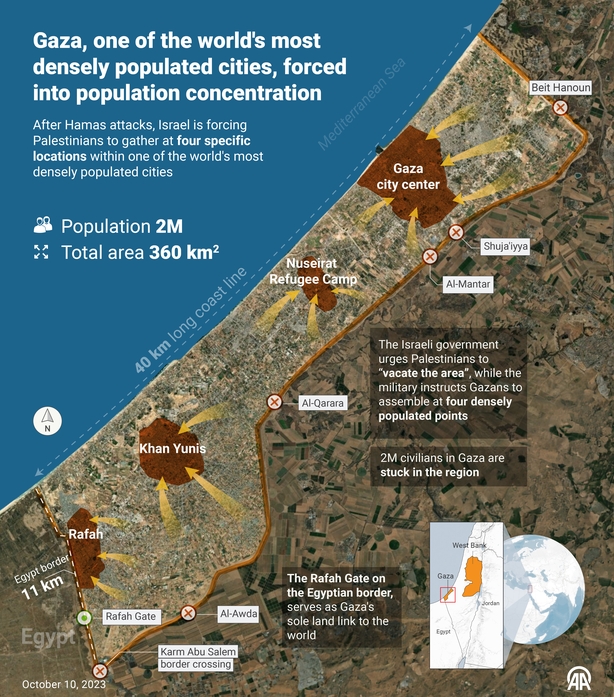The World Health Organization (WHO) has called for a humanitarian corridor to be established into and out of Gaza, which has been placed under total siege by Israel.
"WHO is calling for an end to the violence... A humanitarian corridor is needed to reach people with critical medical supplies," WHO spokesman Tarik Jasarevic told a press briefing in Geneva.
More than 187,500 people have been displaced in Gaza since Hamas' surprise assault on Israel on Saturday sparked massive air strikes on the territory, the United Nations said.
"Displacement has escalated dramatically across the Gaza Strip reaching more than 187,500 since Saturday," with most taking shelter in UN schools, UN humanitarian agency the Office for the Coordination of Humanitarian Affairs (OCHA) said in a statement.

"These new displacements add to some 3,000 Palestinians who were displaced from previous escalations," it added.
Israel's total siege of Gaza, depriving civilians of goods essential for survival, is banned under international law, the United Nations human rights chief has said.
Volker Türk, the UN High Commissioner for Human Rights, said people's dignity and lives had to be respected as he called for all sides to defuse the "explosive powder-keg situation".
Palestinian militant group Hamas, which abducted about 150 people in its surprise weekend assault on Israel, has threatened to execute the hostages if Israeli air strikes continue "targeting" Gaza residents without warning.
The threat came after Israel imposed a total siege on Gaza yesterday - cutting off food, water and electricity supplies - sparking fears of an increasingly desperate humanitarian situation.
"International humanitarian law is clear: the obligation to take constant care to spare the civilian population and civilian objects remains applicable throughout the attacks," Mr Türk said in a statement.
The siege risks seriously compounding the already dire human rights and humanitarian situation in Gaza, including the capacity of medical facilities to operate, especially in light of increasing numbers of injured, the statement said.
"The imposition of sieges that endanger the lives of civilians by depriving them of goods essential for their survival is prohibited under international humanitarian law," Türk said.
Any restrictions on the movement of people and goods to implement a siege must be justified by military necessity or may otherwise amount to collective punishment, the statement added.

